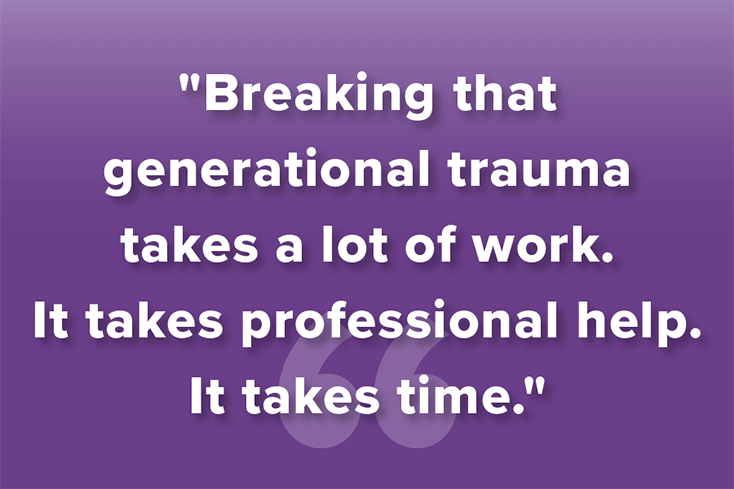March 23, 2023
By Cyn Vargas

I smiled through it. Through the dark episodes of depression in which I drowned silently in pain and shame. Through the thoughts of suicide. Visions of how I would end it all stitched themselves in my brain. I didn’t want anyone to know how I was feeling. I didn’t want to burden my husband, family and close friends. And I was ashamed of how worthless I felt. So, what did I do? I smiled. I made jokes. I was happy. Or, shall I say, I seemed happy.
Eventually, the day came when I was exhausted by pretending, exhausted by just being. My thoughts had never escalated like that before. I called my therapist — a phone call that truly saved me. Later that day, I shared what I was feeling with my husband. Opening up to him saved me, too. Eventually, figuring out the right medication with my psychiatrist would save me as well. I call those three incredible people my trinity.
But many people, I have come to realize, don’t have a trinity — or even one person to whom they can turn. People struggling with mental health conditions may seem happy, but many are floating in darkness thinking they are alone. If they only knew to reach out, they would know there were others in the darkness with them.
Growing up, I didn’t have the mental health resources I needed. Black and brown communities didn’t really speak of mental health. I often received the “Why are you sad? Be happy!” approach — the implication being that if you are depressed, it’s because you choose to be that way. This is largely a product of generational trauma, reenforced with shame and silence. Breaking that generational trauma takes a lot of work. It takes professional help. It takes time.
Moving forward, I hope that the mental health community will focus more on addressing generational trauma — on educating the older communities about what generational trauma even means. And I hope we can continue to educate the younger generations to take mental health more seriously. It would help young people today and all the generations to come after. Generations who will know there is help. Generations that will tell their parents or trusted adults at the stage of early onset that they are not ok. Slowly, we can create a culture of care and trust.
Part of this education requires rethinking the stereotypes of depression. It doesn’t necessarily look like what you see in media depictions (crying and not being able to get out of bed). Sometimes depression can even look like smiling. Ultimately, we need to abandon our own tunnel vision and look beyond ourselves, and really look at those around us — our immediate and extended families, our friends and our colleagues. If we can care for each other and create an environment without judgment, we can move forward. This is easier said than done, but we need to start moving. Any step is better than none.
I am happy now. When I smile, I mean it. When I need help, I ask for it. This has been years in the making. And it will always be a journey. But if I fall back, I know I can get out of it. Together we can all do better. Together we will be better.
We’re always accepting submissions to the NAMI Blog! We feature the latest research, stories of recovery, ways to end stigma and strategies for living well with mental illness. Most importantly: We feature your voices.
LEARN MORENAMI HelpLine is available M-F, 10 a.m. – 10 p.m. ET. Call 800-950-6264,
text “NAMI” to 62640, or email. In a crisis, call or text 988 (24/7).